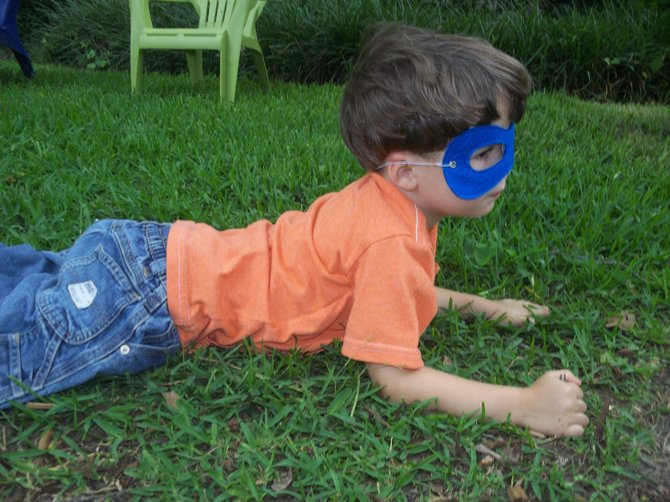One of the best gifts you can give your child is unconditional love—regardless of your mood. Photo by Kelly Bryan Smith
If you are a parent, I suspect there has been a time (maybe just once, or maybe more than once) when you really felt like you might just completely lose it if your child did not stop whining, or throwing a fit, or hitting his or her brother. Perhaps your sympathetic nervous system got all fired up and threw you into full fight-or-flight mode, and you felt like you were just going to explode.
This is normal. It is part of being a human and part of being a parent. It doesn't mean you are a bad parent—it just means you are a parent. Children are not born knowing how to handle their emotions in a healthy way or how to act in the ways that are culturally appropriate for adults to act. It is our job to teach them. It is a long process, and it is not always an easy thing to do.
Children largely learn how to handle frustration and anger (and all emotions) by observing their parents and how they handle frustration and anger. And due to the wonders of mirror neurons, children internalize those responses and take them into adulthood as part of their own system of coping mechanisms and responses over the course of their lifetimes. For some people, it is tricky to disentangle from this hardwiring of their childhood, which can explain why some dysfunctional behaviors get passed through the generations.
But that doesn't have to be the end of the story. Basically, if you want your child to handle life's obstacles with patience and grace over the long term, it is not a matter of a short-term fix, such as yelling about whining or spanking during a tantrum. Rather, the best things you can do are to have realistic expectations for developmentally appropriate behaviors and to model healthy problem-solving behaviors in your own life.
What does this mean? When your sweet little kid has seemingly turned into a demon from you-know-where, and you are at the veeeery end of your rope, the best thing to do is not scream at someone or spank or throw something—unless that is genuinely how you want your children to respond when they can't tie their shoe just right or their best friend grabs a toy from them.
Instead, start the gradual process of modeling a different kind of response. This doesn't mean you need to turn into a robot with a fake smile pasted on around the clock. This doesn't mean your kid isn't ever going to whine and throw tantrums. Dealing with emotions in a healthy way is something you can learn to do together, and it is a process. Just be realistic and stay flexible as you (and your kids) explore some of these ways to be more conscious about your anger and frustration. Don't repress it. Accept that emotion, live into it, then release it and move on.
Ways to Release Anger
• Accept and acknowledge your feelings.
• Verbalize your feelings ("I feel angry when...").
• Stomp feet.
• Squish Play-Doh.
• Have a screaming contest outside.
• Dance it out to loud music.
• Sweat it out at the gym.
• Jump on the trampoline.
• Draw or paint your feelings.
• Scream, roar or cry into your favorite pillow.
• Talk to a good friend about it.
• Wring a towel in your hands.
Ways to Calm Your Sympathetic Nervous System
• Press your hands firmly together in prayer position in front of the chest for 20 to 30 seconds.
• Repeat a soothing mantra, quote or prayer out loud.
• Take a long walk outside.
• Take a hot bath with Epsom salts and lavender essential oil.
• Close your eyes and visualize a relaxing place (you can talk through a relaxing scene with kids to help them learn how to do this).
• Give yourself a mini massage.
• Put both hands on your stomach and focus on how they move as you take deep breaths.
• Press the thumb of one hand into the very center of the palm of the other hand and hold pressure for a minute before switching sides.
Great Books for Grownups
"Anger: Wisdom for Cooling the Flames," by Thich Nhat Hahn, Riverhead Trade, 2002, $16
"How to Talk So Kids Will Listen and Listen So Kids Will Talk," by Adele Faber and Elaine Mazlish, Scribner, 2012, $16
"Kids are Worth It," by Barbara Coloroso, William Morrow, 2002, $14.99
Great Books for Kids
"Hands are Not for Hitting," by Martine Agassi, Free Spirit Publishing, 2002, $7.95
"When You're Mad and You Know it," by Elizabeth Crary and Shari Steelsmith, Parenting Press, 1996, $7.95
"When Sophie Gets Angry—Really, Really Angry," by Molly Bang, Scholastic, 2004, $8.99


